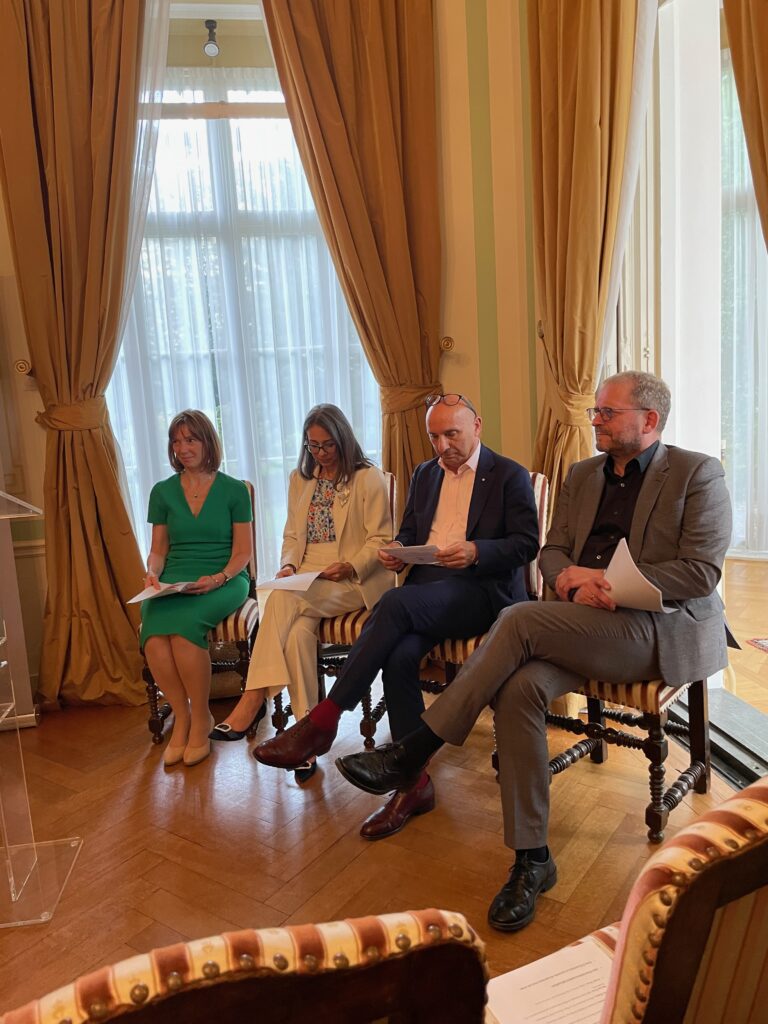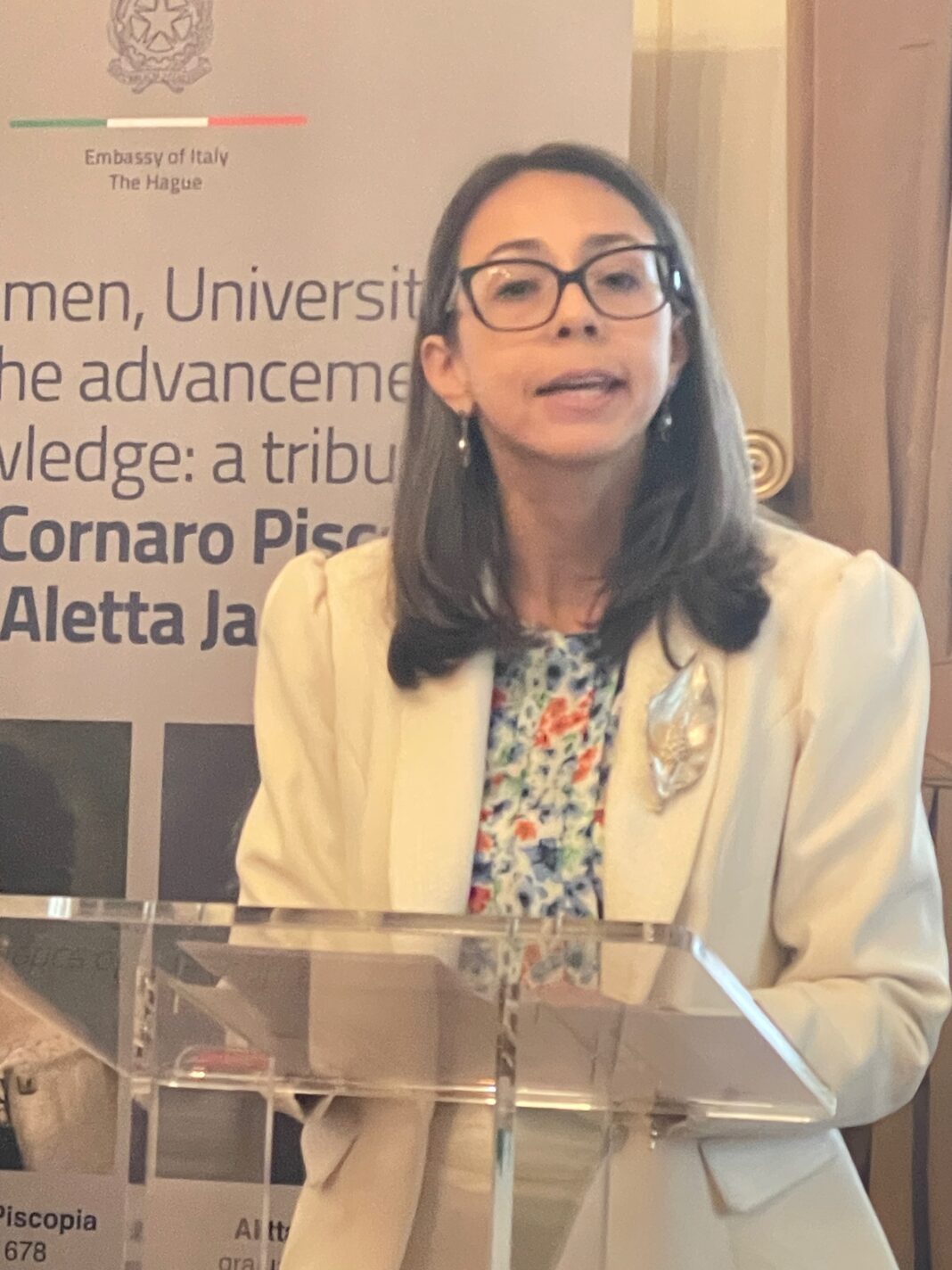A tribute to Elena Cornaro Piscopia and Aletta Jacobs
Text and pictures by John Dunkelgrün
On June 27th H.E. Mr. Giorgio Novello hosted a remarkable symposium at the residence of the Italian Embassy. Six eminent speakers described the struggle of women for the right to have an academic education.
Elena Piscopia (1646-1684) was the first woman in Italy and probably in the world to graduate from a university, the University of Padua. She was a true polymath, fluent in seven languages, and an accomplished poet and mathematician. She was also a gifted musician, who mastered half a dozen instruments.
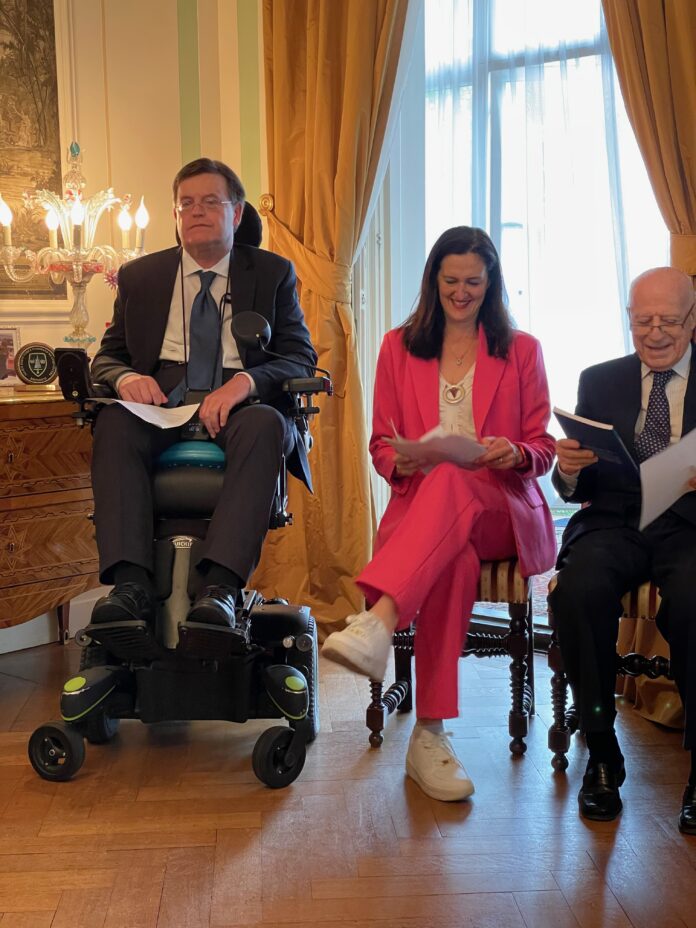
She had wanted to get a doctorate in theology, but for Cardinal Gregorio Barbarigo, the bishop of Padua, that was a bridge too far and she had to switch to philosophy. She received her doctorate in 1678.
Piscopia never married, devoting her life to academic pursuits and charity. Her father was instrumental in having the statutes of the University of Padua amended to allow female students. However, it took over half a century before the next woman obtained her doctorate there.

Aletta Henriëtte Jacobs (1854-1929) was the daughter of a Jewish country doctor in a small town in the North of The Netherlands. From an early age on, she wanted to follow in her father’s footsteps, but universities would not allow women students.
Only through the intervention of Thorbecke, a powerful minister and well-known liberal, was she allowed to enter the University of Groningen in 1871. She graduated in 1879, the first female university graduate in The Netherlands. Before setting up practice in Amsterdam, she traveled to London, where she met and was inspired by freethinkers, suffragists, and radicals.
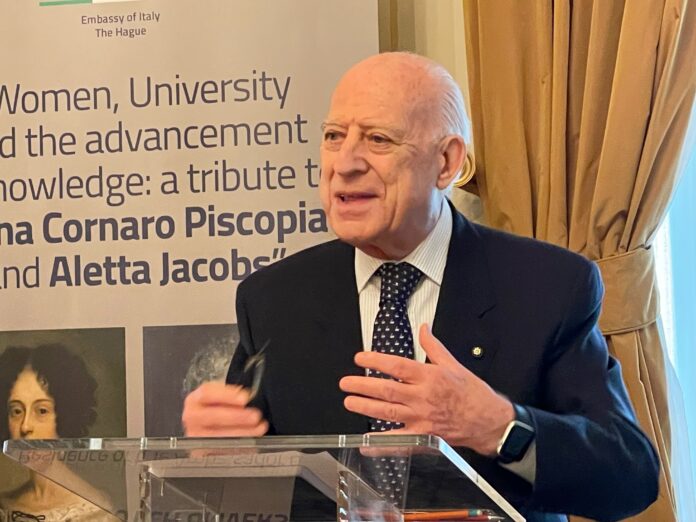
When she set up her practice, she devoted several mornings a week to the free treatment of poor women. She campaigned for birth control and better working conditions for women.
As time went by, she became more interested in the politics of fighting for women’s rights, education, and health. She traveled all over the world, became a member of many women’s rights associations, and was a vigorous anti-war demonstrator. In 1914, during the first months of WW1, she managed to organize an international women’s conference at the Hague, which included participants from the warring countries.
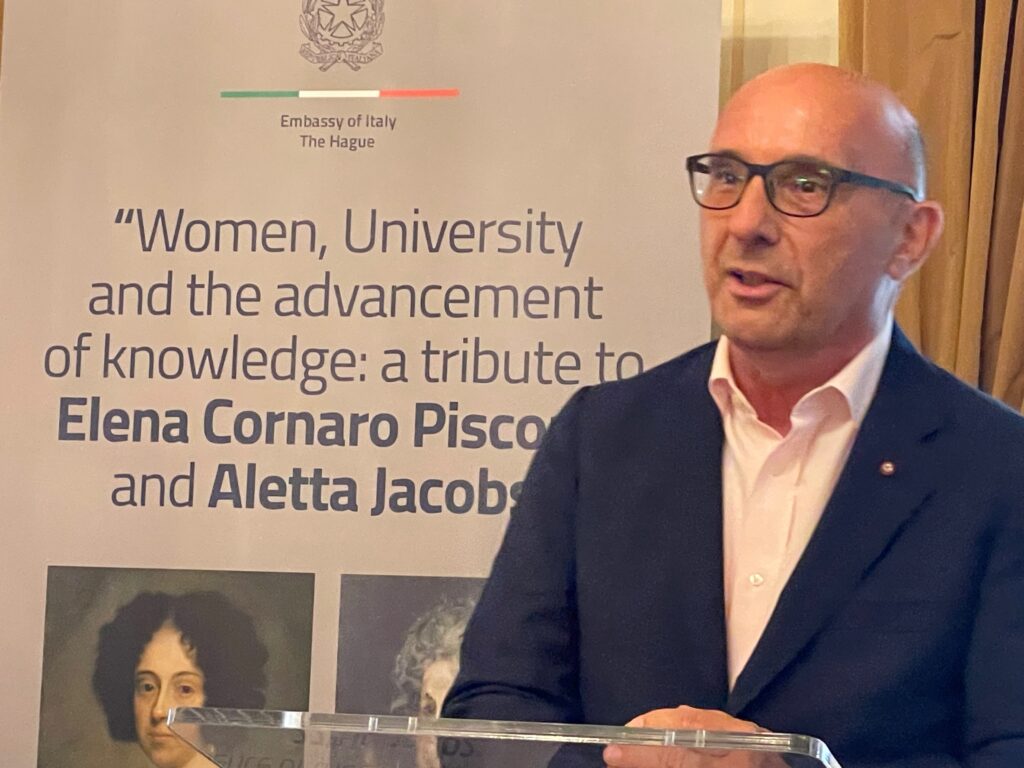
In 1919 women in The Netherlands finally won full voting rights.
Aletta Jacobs was not the first woman to receive a university education. An almost contemporary to Elena Piscopia was Anna Maria van Schurman (1607-1678). She was allowed to attend lectures albeit from behind a curtain in order not to distract thimble students. She was not allowed to graduate. Like Piscopia, she was an amazing linguist who published her correspondence with many of the major thinkers of her time. (With thanks to Harriet Feinberg).
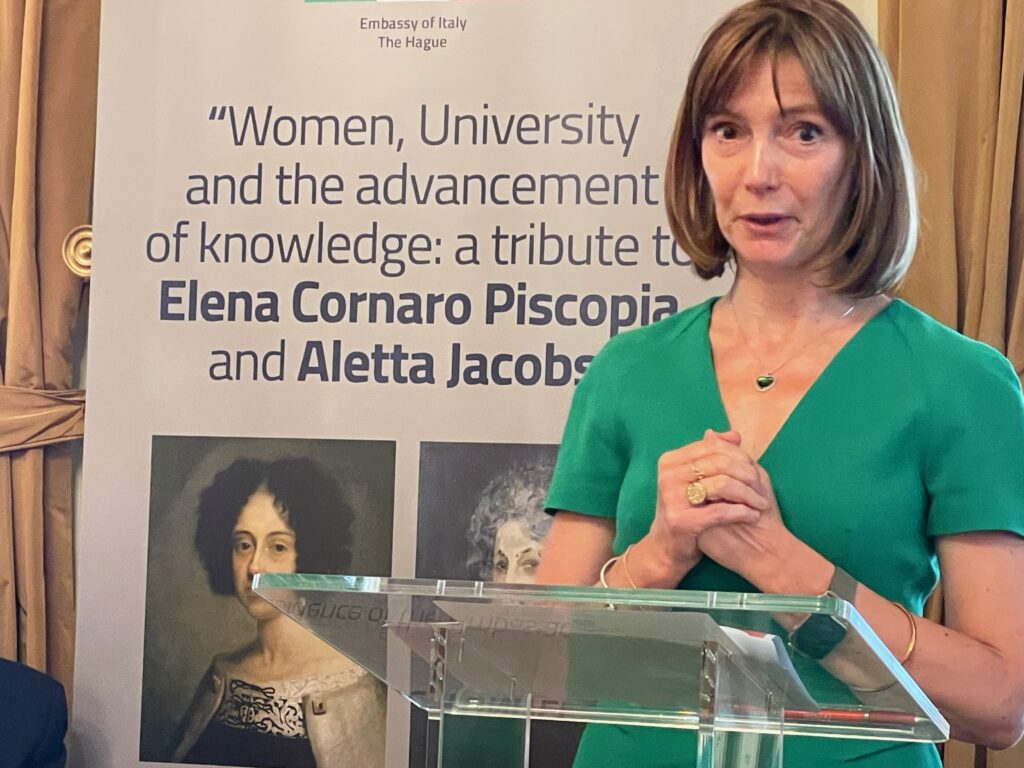
The speakers all described different aspects of the arduous heights women had to climb to reach acceptance as intellectual equals and how much there is yet to do. It was an inspiring and important symposium worthy of a much larger audience.

Speakers:
- H.E. Ms. Carolina Olarte Bécares, ambassador of Colombia;
- Prof. Emile Schrijver, General Director of the Jewish Cultural Quarter and the Jewish Museum in Amsterdam;
- Mr. Harald Hendrix, professor of Italian studies at the University of Utrecht;
- Ms Hélène Pichon, director of the Alliance française de La Haye;
- Ms. Miriam Frosi, Innovation manager at Rijkswaterstaat and member of the city council of Eindhoven;
- Mr. Fausto Pocar, judge ad hoc at the International Court of Justice.
